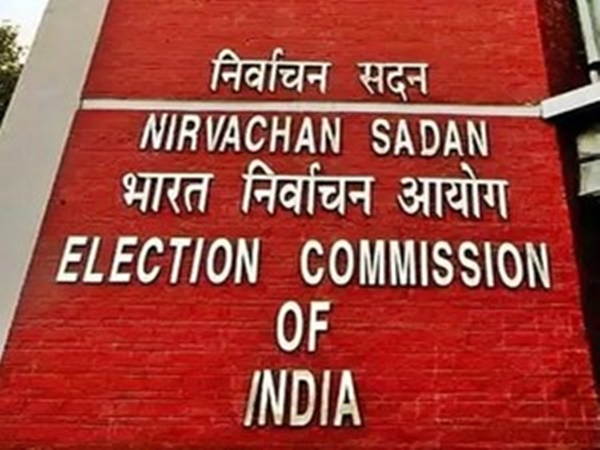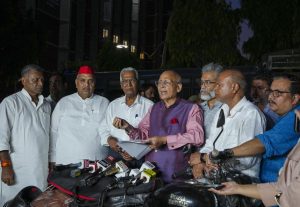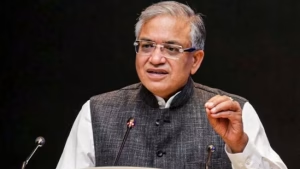New Delhi – The Election Commission of India has initiated a comprehensive Electoral Roll Revision in Bihar through a Special Intensive Revision (SIR) process, marking the first such exercise in the state since 2003. This extensive undertaking aims to update and verify the electoral database for nearly 79 million electors across Bihar, setting the stage for upcoming assembly elections scheduled later this year.
Comprehensive Five-Phase Implementation Strategy

The Electoral Roll Revision in Bihar follows a meticulously planned five-phase approach designed to ensure systematic coverage of all eligible voters. The Election Commission has deployed 77,895 booth-level officers (BLOs) with an additional 20,603 newly recruited personnel to manage this massive undertaking. Supporting this effort are 154,000 booth-level agents (BLAs) appointed by recognized political parties.
The structured approach of the Electoral Roll Revision in Bihar demonstrates the Election Commission’s commitment to conducting a thorough and transparent process. This systematic methodology ensures that every eligible voter receives adequate opportunity to participate in the verification process while maintaining the integrity of the electoral database.
Phase One: Enumeration Form Distribution


The initial phase of the Electoral Roll Revision in Bihar ran from June 25 to July 3, focusing on distributing Enumeration Forms (EFs) to all electors listed on the electoral roll as of June 24. Booth-level officers conducted door-to-door delivery of these forms to reach all 7.90 crore electors whose names appeared on the existing electoral roll.
The Election Commission enhanced accessibility by making forms available for download on the ECI portal during this Electoral Roll Revision in Bihar phase. Political parties’ booth-level agents received authorization to submit up to 50 certified forms per day, ensuring broad participation in the verification process.
Phase Two: Assisted Form Completion
The second phase of the Electoral Roll Revision in Bihar concentrates on assisting electors in completing and submitting their enumeration forms by July 25. The Election Commission deployed nearly 400,000 volunteers, including government officials, NCC cadets, and NSS volunteers, to facilitate this process.
This phase of the Electoral Roll Revision in Bihar particularly emphasizes supporting vulnerable populations, including elderly citizens, sick individuals, persons with disabilities, economically disadvantaged voters, and other marginalized groups. The comprehensive volunteer network ensures that no eligible voter faces barriers in participating in the verification process.
Phase Three: Data Collection and Upload
Running concurrently with the first two phases, the third phase of the Electoral Roll Revision in Bihar spans from June 25 to July 26, focusing on collecting completed enumeration forms and uploading data to the Election Commission’s unified portal. Online submission capabilities became available on July 3, providing additional convenience for voters.
This technological integration in the Electoral Roll Revision in Bihar represents a significant advancement in electoral administration, streamlining data processing while maintaining accuracy and security standards. The unified portal system enables real-time monitoring of the revision process across all constituencies.
Phase Four: Draft Electoral Roll Publication
The fourth phase of the Electoral Roll Revision in Bihar involves publishing the draft electoral roll on August 1. This draft will exclude names of electors who failed to submit enumeration forms before the July 25 deadline, creating a preliminary verified voter list for public review.
The Election Commission has established provisions within this Electoral Roll Revision in Bihar phase allowing late applicants to participate through Form 6 applications for new voters, accompanied by declaration forms. Booth-level agents maintain authorization to submit up to 10 forms daily even after draft roll publication.
Phase Five: Claims and Objections Period
The final phase of the Electoral Roll Revision in Bihar allows for claims and objections submission from August 1 to September 1. This crucial period ensures that any discrepancies or omissions in the draft roll can be addressed before final publication.
During this Electoral Roll Revision in Bihar phase, the Election Commission guarantees that no deletions will occur without proper inquiry and fair hearing for concerned individuals. Daily lists of claims and objections will be displayed at Electoral Registration Officer offices and published on the Chief Electoral Officer’s website, with weekly updates shared with political parties.
Document Requirements and Verification Process


The Electoral Roll Revision in Bihar establishes specific documentation requirements based on voters’ historical records. Electors listed in the 2003 electoral roll must submit enumeration forms along with roll extracts, while those not previously listed must provide approved documentation including passports, birth certificates, or educational certificates.
The tiered system within the Electoral Roll Revision in Bihar creates different requirements based on birth dates. Individuals born before July 1, 1987, need only personal documents, while those born between July 1, 1987, and December 2, 2004, must include one parent’s documentation. Voters born after December 2, 2004, require documentation for both parents.
Political Opposition and Concerns


The Electoral Roll Revision in Bihar has sparked significant controversy among opposition parties, who allege the exercise is designed to disrupt electoral fairness ahead of assembly elections. Representatives from 11 political parties met with Chief Election Commissioner Gyanesh Kumar and commissioners to express their concerns.
Congress leader Abhishek Manu Singhvi criticized the Electoral Roll Revision in Bihar requirements, arguing that demanding birth certificates creates insurmountable barriers for vulnerable populations including backward communities, flood-affected residents, poor citizens, scheduled castes and tribes, and migrant workers. He estimated that upwards of 2.5 crore people might face disenfranchisement.
Justification for Electoral Roll Revision

The Election Commission justifies the Electoral Roll Revision in Bihar by citing rapid urbanization, frequent migration patterns, surge in first-time voters, non-reporting of deaths, and concerns about foreign illegal immigrants. These factors have created discrepancies in the existing electoral database that require comprehensive resolution.
The last Electoral Roll Revision in Bihar occurred in 2003, making this current exercise essential for maintaining electoral integrity. The Commission plans to extend this revision process to the entire country following Bihar’s completion, indicating the nationwide scope of electoral database challenges.
Appeal Process and Final Timeline
The Electoral Roll Revision in Bihar includes provisions for appeals against Electoral Registration Officer decisions within 15 days, with further appeal options to the Chief Electoral Officer within 30 days. This multi-tiered appeal system ensures due process protection for all voters throughout the revision process.
The final electoral roll publication is scheduled for September 30, completing the comprehensive Electoral Roll Revision in Bihar process. This timeline provides adequate preparation time for upcoming assembly elections while ensuring thorough verification of all eligible voters.
The success of this Electoral Roll Revision in Bihar will significantly impact the credibility and inclusiveness of the state’s electoral process, setting precedents for similar exercises across India.

